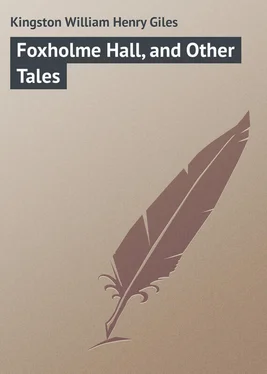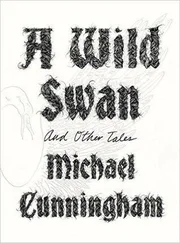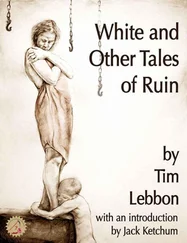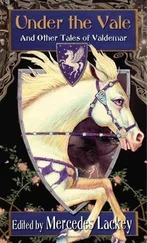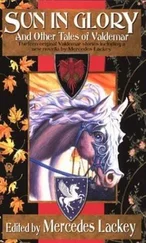William Kingston - Foxholme Hall, and Other Tales
Здесь есть возможность читать онлайн «William Kingston - Foxholme Hall, and Other Tales» — ознакомительный отрывок электронной книги совершенно бесплатно, а после прочтения отрывка купить полную версию. В некоторых случаях можно слушать аудио, скачать через торрент в формате fb2 и присутствует краткое содержание. Жанр: foreign_prose, foreign_children, на английском языке. Описание произведения, (предисловие) а так же отзывы посетителей доступны на портале библиотеки ЛибКат.
- Название:Foxholme Hall, and Other Tales
- Автор:
- Жанр:
- Год:неизвестен
- ISBN:нет данных
- Рейтинг книги:3 / 5. Голосов: 1
-
Избранное:Добавить в избранное
- Отзывы:
-
Ваша оценка:
- 60
- 1
- 2
- 3
- 4
- 5
Foxholme Hall, and Other Tales: краткое содержание, описание и аннотация
Предлагаем к чтению аннотацию, описание, краткое содержание или предисловие (зависит от того, что написал сам автор книги «Foxholme Hall, and Other Tales»). Если вы не нашли необходимую информацию о книге — напишите в комментариях, мы постараемся отыскать её.
Foxholme Hall, and Other Tales — читать онлайн ознакомительный отрывок
Ниже представлен текст книги, разбитый по страницам. Система сохранения места последней прочитанной страницы, позволяет с удобством читать онлайн бесплатно книгу «Foxholme Hall, and Other Tales», без необходимости каждый раз заново искать на чём Вы остановились. Поставьте закладку, и сможете в любой момент перейти на страницу, на которой закончили чтение.
Интервал:
Закладка:
The Squire was milch amused, and encouraged old Spankie to continue his narrations.
“Well, sir, if it wasn’t you sold Mr Fowler so cleverly, it surely was you who got up the great donkey race on the Slough road, just outside Eton.”
“Suppose it was me, or suppose it was not, just do you tell my boy here all about it. I like to hear you speak of old times,” answered the Squire.
“Well, sir, the young gentlemen got hold of two fine donkeys, and turned out in regular jockey costume, – caps, silk jackets, top boots, and all. Great swells they looked, and there was no end of boys went out to see them. The whole road was full for a mile or more. A course was formed, and off they set; but donkeys never will run when you want them, or, rather, they always will run when you don’t want them. As ill-luck would have it, who should come by but the Doctor. He wasn’t a man a bit less than the present to play a joke with. What should one of the racers do but run right against his carriage, and make the horses kick and rear, and, in spite of all the unhappy jockey could do, he couldn’t get him away. The Doctor just saw who they were, and though it may be supposed he was in a towering rage, says he quietly enough, ‘Go to your tutors and report yourselves, and come to me this evening.’ Of course they knew that they would get flogged, and so one of them provided himself with a pair of wicket-keeping gloves, and went in quite boldly. ‘It’s my duty to flog you,’ says the Doctor – ‘strip.’ ‘It’s my duty to save my skin,’ says the young gentleman, putting on his gloves quite deliberately; and when the Doctor began, he warded off all the cuts till the master grew weary. Then he handed them to his friend, who put them on and saved himself in the same way. Of course they got all the credit of being flogged, and were laughed at for their pains, till they told how they had saved themselves with their cricketing gloves.”
“Tell that story to the marines,” said the Squire. “However, I dare say some of it is true enough; but I wasn’t one of the jockeys, and I wouldn’t advise my son to imitate them either. However, old friend, I like to hear you talk of bygone days, and here’s a five shilling piece. Let my son take it out in buns and tarts when he has a mind to do so.”
“Thank ye, sir, thank ye,” said old Spankie, and the Squire walked on, knowing that he had secured another friend for Reginald. They hurried on to Windsor Castle, which had been much altered and beautified since the Squire had seen it, and certainly, rising up as it does from its richly-green forest, with its terraces and towers, it has a peculiarly handsome and regal appearance. When they got back, the boys were just coming out from two o’clock absence, and were running off to their dames’ and tutors’ houses. The Squire looked narrowly at them as they passed, to try and find the sons of any of his acquaintance who might be there. Had he written to ascertain the houses they belonged to, he would easily have discovered them. Suddenly Reginald left his father’s side, and ran after a boy whose hand he seized and wrung warmly.
“What, Warrender, are you come here?” asked his friend.
“Indeed I am,” answered Reginald; “but I had no notion that you were here, Power. How very fortunate I am to find you! But come along, I’ll introduce you to my father. He’ll want you to dine with us.”
Of course Power was nothing loth to accept the invitation. He had come up just in time, before he was too old, and had at once taken a fair standing in the school, being in the upper division of the Fourth Form, and about to go into the lower remove. He was, too, in Reginald’s own house, which was a very great satisfaction. The Squire at length found out the son of a friend of his – young Anson, and invited him to join his dinner-party at the Christopher. As he wanted to see the cricketing and boating in the afternoon, he had ordered dinner early; and, saying he might not exactly know what Eton boys of the present day liked, he had left the selection of the dishes to the landlord. A very merry party they were seated round the dinner-table at the Christopher, and ample justice did they all do to the dinner provided. The Squire wished to give the boys the best of everything, so he ordered champagne and claret.
“Wine?” said Anson, looking at Power.
The latter nodded, and with due gravity they hobnobbed together, tossing off the sparkling contents of their tall glasses.
“Very good wine they give at the Christopher,” observed Anson to the Squire; “in my opinion, this Château Margaux claret is about as first-rate tipple as one finds anywhere.”
“I fancied their Lafitte was better, and ordered it accordingly,” answered the Squire, much amused at his young friend’s remarks.
“Oh, certainly, I am very glad of that,” quickly replied Anson. “The fact is, I had not tasted their Lafitte, and supposed that they could have nothing better than their Château Margaux.”
“Try this, then,” said the Squire, pushing a bottle of freshly-decanted claret towards him; “say what you think of it.”
“Perfect nectar,” answered the young gentleman, smacking his lips. “This beats the other hollow. I must row mine host for not giving us his best wine the last time I dined with my uncle here.”
“We were not so particular in my days,” observed the Squire; “good honest port and sherry sufficed us. But I tell you what, lads, stick to the light wines, and a moderate quantity of them will do you no harm; but eschew spirits-and-water, or spirits in any shape, as you would poison, and when you drink beer, don’t go swilling away huge quantities, as I see some fellows doing, as if their insides were mere tuns made to hold liquor. Just look at the great, fat, pursy, bloated fellows you often meet, and think how you would like to become as they are. Well, they brought themselves to that state by swilling beer and spirits-and-water. Others have sent themselves to their graves by the same means, and others, though not pursy, have lost their health and stamina, and spirits, and are burdens to themselves, and useless in the world.”
Reginald used to say of his father that he did not preach much, but that he had a wonderful way of bringing in good advice, and sugaring it at the same time. In the present instance he was washing down a temperance harangue with champagne and claret. He knew that his advice would much more likely be taken than if he had ordered toast-and-water and small beer for dinner.
In very good humour with themselves, with the world in general, and with Eton in particular, which Reginald thought a first-rate place indeed, they sallied forth into the playing-fields, where several cricket matches were going on. One, Oppidans against Collegers, excited most interest, because there always is, though there ought not to be, a good deal of party-feeling between the collegers, the boys on the foundation, and those who are not; the latter, who are more frequently sons of men of wealth and influence, looking down upon those who have gained their position by their talents and industry. The broad smooth green meadows, with the fine grey school buildings, and their magnificent trees rising up behind them, presented a very gay and animated appearance. Numbers of boys in their picturesque cricketing costumes were lying about in all directions – England’s nerve and spirit, and head and heart – those who were hereafter to head her armies and guide her councils. Little wotted they then of the destinies in store for some of them. A stranger might have said, as he saw their active forms bounding here and there – There is England’s bone and muscle. So there was, but that is to be found rather in her wide fields, in her mines, her coal-pits, on her broad quays, in her manufactories, in her towns, and on her railroads. The different games were sufficiently apart, so as not to interfere with each other. Round each of the scorers knots of amateurs were collected, watching the game with intense interest, and applauding or condemning, as each hit was well or ill made or fielded. At a respectful distance from the wide-flying balls, a number of ladies, and children, and nurses, and other spectators, wandered about admiring the play or the cricketers.
Читать дальшеИнтервал:
Закладка:
Похожие книги на «Foxholme Hall, and Other Tales»
Представляем Вашему вниманию похожие книги на «Foxholme Hall, and Other Tales» списком для выбора. Мы отобрали схожую по названию и смыслу литературу в надежде предоставить читателям больше вариантов отыскать новые, интересные, ещё непрочитанные произведения.
Обсуждение, отзывы о книге «Foxholme Hall, and Other Tales» и просто собственные мнения читателей. Оставьте ваши комментарии, напишите, что Вы думаете о произведении, его смысле или главных героях. Укажите что конкретно понравилось, а что нет, и почему Вы так считаете.
